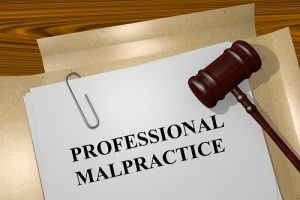 Written by Jim Ragain
Written by Jim Ragain
Sooner or later, chances are that you will have to face a malpractice claim at some point. While many of these claims may be without merit or settled quickly for a nominal sum, the reality is that these claims can be time-consuming and emotionally draining. In short, even if you win, it can feel like you lost. Fortunately, there are some relatively simple steps that you can take that will reduce the likelihood of facing a malpractice claim.
Informed Consent
Medical professionals understand the importance of informed consent – in many ways, it is the first line of defense against malpractice claims. Obtaining the patient’s informed consent involves explaining the nature of the treatment, whether there are any alternatives available, and the potential risks and side effects that are associated with the procedure. The goal is to provide sufficient information to ensure that the patient can make an informed decision about their medical care.
While informed consent is not an ironclad defense against any malpractice claim, failure to obtain the patient’s informed consent needlessly exposes you to liability. For example, you may face a malpractice claim involving a common side effect that would have been easily disposed of had you obtained the patient’s informed consent.
As a result, many medical providers have systems in place to ensure that informed consent is obtained with every treatment. While this is a good start, problems arise when the process becomes overly formulaic and routine. Obtaining the patient’s informed consent becomes overly focused on getting the patient to sign an informed consent form.
Doctors and other medical professionals need to remember that the information must be provided to patients in a meaningful way. Reading a script may cover the bases, but it’s easy for patients to later claim they didn’t understand the information they were provided and felt pressure to just sign the form. Here are some things you can do to guard against this:
- Encourage patients to bring a family member or other caregiver with them who can help them understand the information being provided. This is particularly helpful for elderly patients, patients with cognitive disabilities, or patients for whom English is a second language.
- Allow for enough time to provide the necessary information so that the patient doesn’t feel rushed. Allow plenty of time for questions.
- Ensure that medical staff are properly trained in how to provide this information in a meaningful way. Periodically take steps to ensure that procedures are being followed correctly.
- As much as possible, avoid technical language – provide the information in layperson’s terms.
Lastly, we recommend that you document your policy and the emphasis on providing meaningful information in as much detail as possible.
Consider Your Bedside Manner
Many patients are seeking treatment at a difficult time in their lives. They are stressed, anxious, and possibly even angry. On top of that, many of them feel isolated and alone. As a result, they tend to behave irrationally or lash out at the people who are trying to help them. Without a doubt, this can test the patience of even the most experienced provider.
That said, many malpractice claims are brought out of a sense of retaliation when patients feel that their provider was dismissive, condescending, or didn’t listen. Patients are far more likely to engage a lawyer when they feel like they have been mistreated by their provider. While a patient’s likes or dislikes are largely a matter of perception, it is a reality for them that sparks their decision to pursue a medical malpractice claim.
Providers should of course strive to be friendly and welcoming, but the most important thing is to make it clear that you are listening to the patient, trying to understand their issues and concerns, and responding to their needs. Consider holding periodic training sessions for all patient-facing providers to go over things like active listening skills and how to put difficult patients at ease. Investing in these “soft skills” may help prevent a malpractice claim down the line.
Get Your Documentation Nailed Down
Documentation errors are one of the most common sources of medical malpractice. Failing to note vitals, symptoms, and other medical data can quickly lead to serious errors that can result in stress for the patient if not physical harm. Patient records should always be accurate and up to date.
At the same time, providers should be careful that patient records do not contain extraneous, unnecessary details that could be potentially damaging. For example, a nurse’s comments on a patient’s chart that suggest that they are being a hypochondriac could be especially damaging later on.
This is another area where providers would do well to invest in continued training and supervision. Making sure that medical staff are keeping on top of their documentation and including the right information could save you a lot of time and anguish later on.
Don’t Let Quantity Jeopardize Quality
Medical professionals are under intense pressure to deliver the highest quality patient care while being economically viable. Doctors are experiencing record levels of burnout, depression, and anxiety as they struggle with balancing their economic realities with their professional obligations. Obviously, deteriorating mental health leads to mistakes that can result in medical malpractice. However, doctors who aren’t experiencing depression or other mental health challenges should be mindful of the fact that a higher volume of patients means a higher likelihood of malpractice claims. Growth is a good thing, but providers should only grow when they have the personnel and resources in place to handle that growth.
Small, Consistent Efforts Can Pay Dividends Over Time
As medical malpractice attorneys, we see malpractice claims from start to finish. The initial intake is especially informative as we get to hear the client’s story from their perspective. Patients come to us because they feel confused and alone and are acting based on an emotional response to a difficult situation. Many malpractice claims could be avoided with some additional, continued attention focused on ensuring the patient understands the procedure, listening to their concerns, and responding to their needs. Committing to practicing good patient care can go a long way toward preventing medical malpractice claims.
With over four decades of dispute resolution and litigation experience, Attorney Jim Ragain represents businesses and individuals in various types of personal injury cases including medical malpractice. He is admitted to practice in Nebraska, Montana, and the US Court of Appeals for the 9th Circuit and some of his accolades include: Top 100 Trial Lawyers in Montana, Best Lawyers in America for Personal Injury, and Mountain States Super Lawyers for Products Liability.
Please also review AIHCP’s Health Care Legal & Malpractice Consulting Certification program and see if it meets your academic and professional goals. These programs are online and independent study and open to qualified professionals seeking a four year certification.







